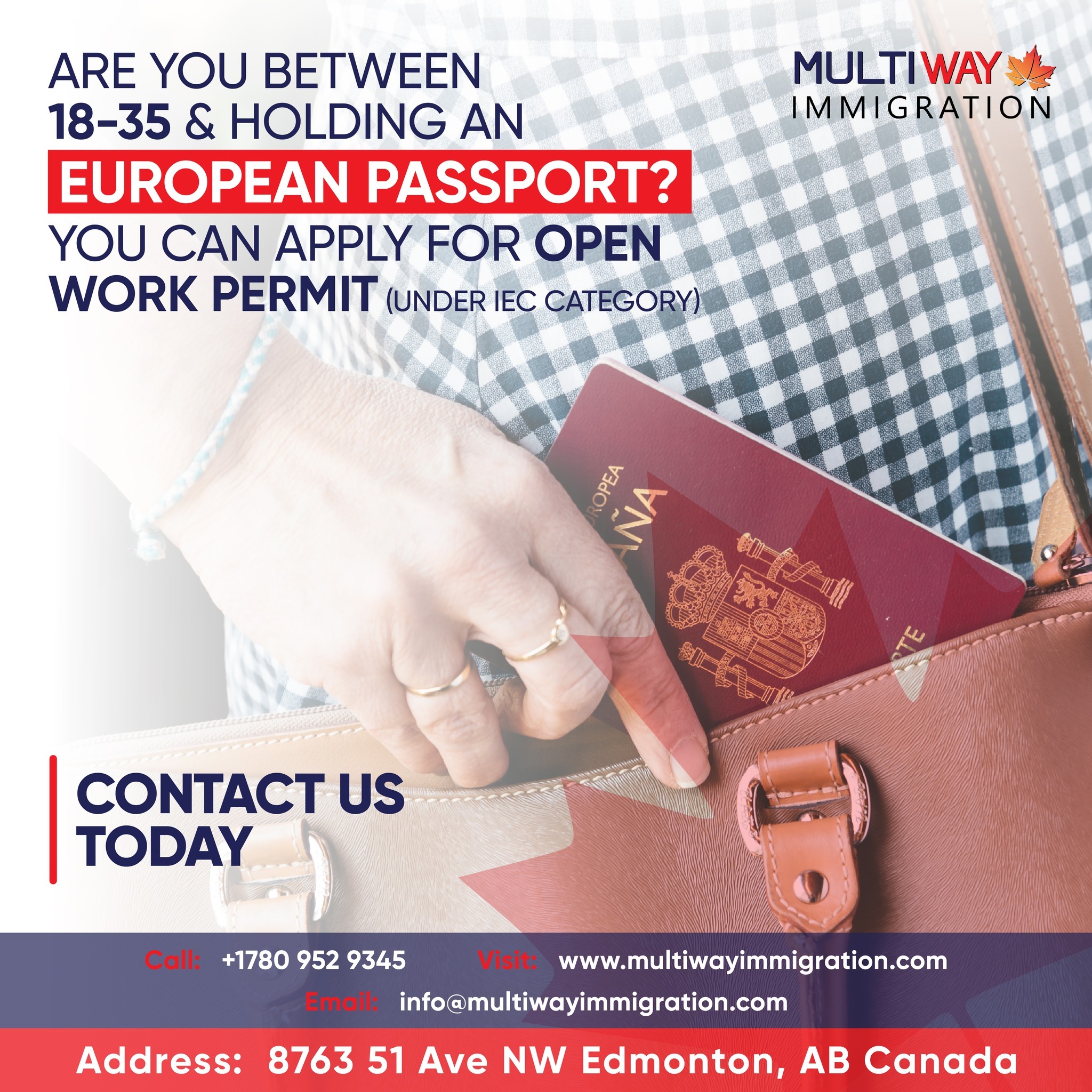Introduction
In recent years, Canada has emerged as one of the top destinations for individuals seeking employment opportunities abroad. With its strong economy, diverse industries, and welcoming immigration policies, Canada offers a promising environment for individuals looking to work and settle in the country. In this article, we will explore the various aspects of the Canada Work Permit, including its eligibility criteria, application process, and benefits for foreign workers.
Table of Contents
- Understanding the Canada Work Permit
- Eligibility Criteria
- Job Offer from a Canadian Employer
- Labor Market Impact Assessment (LMIA)
- Educational Qualifications
- Application Process
- Gathering Required Documents
- Submitting the Application
- Processing Time
- Types of Work Permits
- Temporary Foreign Worker Program
- International Mobility Program
- Post-Graduation Work Permit
- Duration and Renewal of Work Permit
- Temporary Work Permit Duration
- Extending or Renewing a Work Permit
- Benefits of Canada Work Permit
- Gain Valuable Work Experience
- Access to Social Benefits
- Pathway to Permanent Residency
- Challenges and Considerations
- Language Requirements
- Cost of Living
- Cultural Adaptation
- Frequently Asked Questions (FAQs)
- Can I apply for a work permit without a job offer?
- Can I bring my family with me on a work permit?
- Is there a quota on the number of work permits issued?
- Can I switch employers while on a work permit?
- Can I apply for permanent residency after working in Canada on a work permit?
Understanding the Canada Work Permit
The Canada Work Permit, also known as a Temporary Work Permit, allows foreign nationals to work in Canada on a temporary basis. It is a document issued by the Canadian government that authorizes an individual to work for a specific employer in Canada for a limited period. The work permit is job-specific, meaning it is tied to a particular employer and occupation.
Eligibility Criteria
To be eligible for a Canada Work Permit, applicants must fulfill certain criteria. These include:
1. Job Offer from a Canadian Employer
Applicants must have a valid job offer from a Canadian employer before applying for a work permit. The job offer must be genuine, and the employer must demonstrate that they have made efforts to hire Canadian citizens or permanent residents before offering the job to a foreign national.
2. Labor Market Impact Assessment (LMIA)
In most cases, a Labor Market Impact Assessment (LMIA) is required to obtain a work permit. An LMIA is a document issued by Employment and Social Development Canada (ESDC) that assesses the impact of hiring a foreign worker on the Canadian labor market. It ensures that the employment of foreign workers will not negatively affect Canadian workers.
3. Educational Qualifications
Depending on the nature of the job, educational qualifications may be required. Some occupations may require specific degrees, diplomas, or certifications to qualify for a work permit.
Application Process
The application process for a Canada Work Permit involves the following steps:
1. Gathering Required Documents
Applicants need to gather all the necessary documents, including a valid job offer letter, LMIA (if applicable), passport, proof of educational qualifications, and any other supporting documents requested by the immigration authorities.
2. Submitting the Application
Once all the documents are in order, applicants can submit their work permit application to Immigration, Refugees and Citizenship Canada (IRCC). The application can be submitted online or through a visa application center, depending on the applicant’s country of residence.
3. Processing Time
The processing time for a Canada Work Permit varies depending on various factors, including the applicant’s country of residence and the type of work permit being applied for. It is advisable to submit the application well in advance to allow for processing and potential delays.
Types of Work Permits
There are different types of work permits available in Canada, depending on the nature of employment. Some common types include:
1. Temporary Foreign Worker Program
Under this program, individuals with a job offer from a Canadian employer can apply for a work permit. The employer may need to obtain an LMIA before the work permit can be issued.
2. International Mobility Program
The International Mobility Program allows individuals to work in Canada without the need for an LMIA. This program is designed to facilitate the entry of skilled workers, intra-company transferees, and individuals participating in international agreements.
3. Post-Graduation Work Permit
International students who have completed a program of study at a designated Canadian educational institution may be eligible for a post-graduation work permit. This allows them to gain valuable work experience in Canada after graduation.
Duration and Renewal of Work Permit
The duration of a Canada Work Permit depends on various factors, including the job offer and LMIA. In most cases, work permits are issued for the duration of the job offer, up to a maximum of two years. However, some occupations may have different duration limits.
Extending or Renewing a Work Permit
In certain situations, it is possible to extend or renew a work permit in Canada. This typically involves submitting a new application before the current work permit expires. It is important to ensure that the job offer and other eligibility criteria are still met.
Benefits of Canada Work Permit
Obtaining a Canada Work Permit offers several advantages for foreign workers. Some key benefits include:
1. Gain Valuable Work Experience
Working in Canada provides an opportunity to gain valuable international work experience, which can enhance career prospects both in Canada and in the home country.
2. Access to Social Benefits
Work permit holders in Canada have access to various social benefits, such as healthcare coverage and certain government programs, ensuring their well-being during their stay in the country.
3. Pathway to Permanent Residency
A Canada Work Permit can serve as a pathway to permanent residency. By gaining Canadian work experience, individuals may be eligible to apply for permanent residency through various immigration programs.
Challenges and Considerations
While the Canada Work Permit offers numerous benefits, there are certain challenges and considerations to keep in mind:
1. Language Requirements
Proficiency in English or French is often required for work permit applications. Depending on the job and location, applicants may need to provide language test results as part of the application process.
2. Cost of Living
The cost of living in Canada can vary depending on the province or city. It is important to consider factors such as housing, transportation, and healthcare expenses when planning to work in Canada.
3. Cultural Adaptation
Moving to a new country for work requires cultural adaptation. Understanding and adapting to Canadian customs, workplace norms, and social etiquette can contribute to a successful work experience.
Conclusion
Obtaining a Canada Work Visa opens up a world of opportunities for individuals seeking employment in Canada. With its robust economy, diverse industries, and welcoming immigration policies, Canada continues to attract talented professionals from around the globe. By following the application process and meeting the eligibility criteria, foreign workers can embark on a fulfilling work experience in the Great White North.
Frequently Asked Questions (FAQs)
- Can I apply for a work permit without a job offer?
- No, a valid job offer from a Canadian employer is typically required to apply for a work permit.
- Can I bring my family with me on a work permit?
- In most cases, work permit holders can bring their immediate family members to Canada, including their spouse and dependent children.
- Is there a quota on the number of work permits issued?
- Canada does not have a specific quota on the number of work permits issued. However, there may be occupation-specific restrictions or limits in certain cases.
- Can I switch employers while on a work permit?
- Yes, it is possible to switch employers while on a work permit. However, certain conditions and procedures must be followed to ensure compliance with Canadian immigration regulations.
- Can I apply for permanent residency after working in Canada on a work permit?
- Yes, gaining Canadian work experience on a work permit can enhance eligibility for various immigration programs, providing a pathway to permanent residency in Canada.



